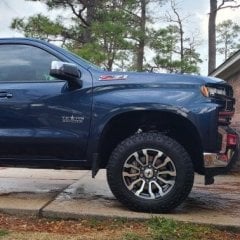How often do you change your oil? Do you do it by the book?
-
Similar Content
-
- 0 replies
- 149 views
-
- 3 replies
- 399 views
-
- 6 replies
- 398 views
-
- 0 replies
- 292 views
-
- 7 replies
- 852 views
-
-
Recently Browsing 0 members
- No registered users viewing this page.
-
Forum Statistics
246k
Total Topics2.6m
Total Posts -
Member Statistics
-
Who's Online 4 Members, 0 Anonymous, 604 Guests (See full list)















Recommended Posts
Join the conversation
You can post now and register later. If you have an account, sign in now to post with your account.